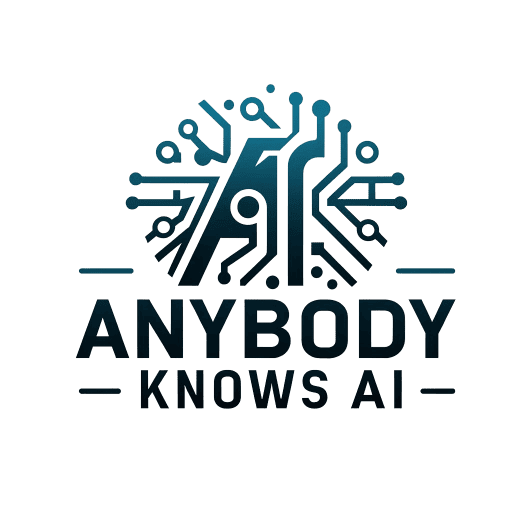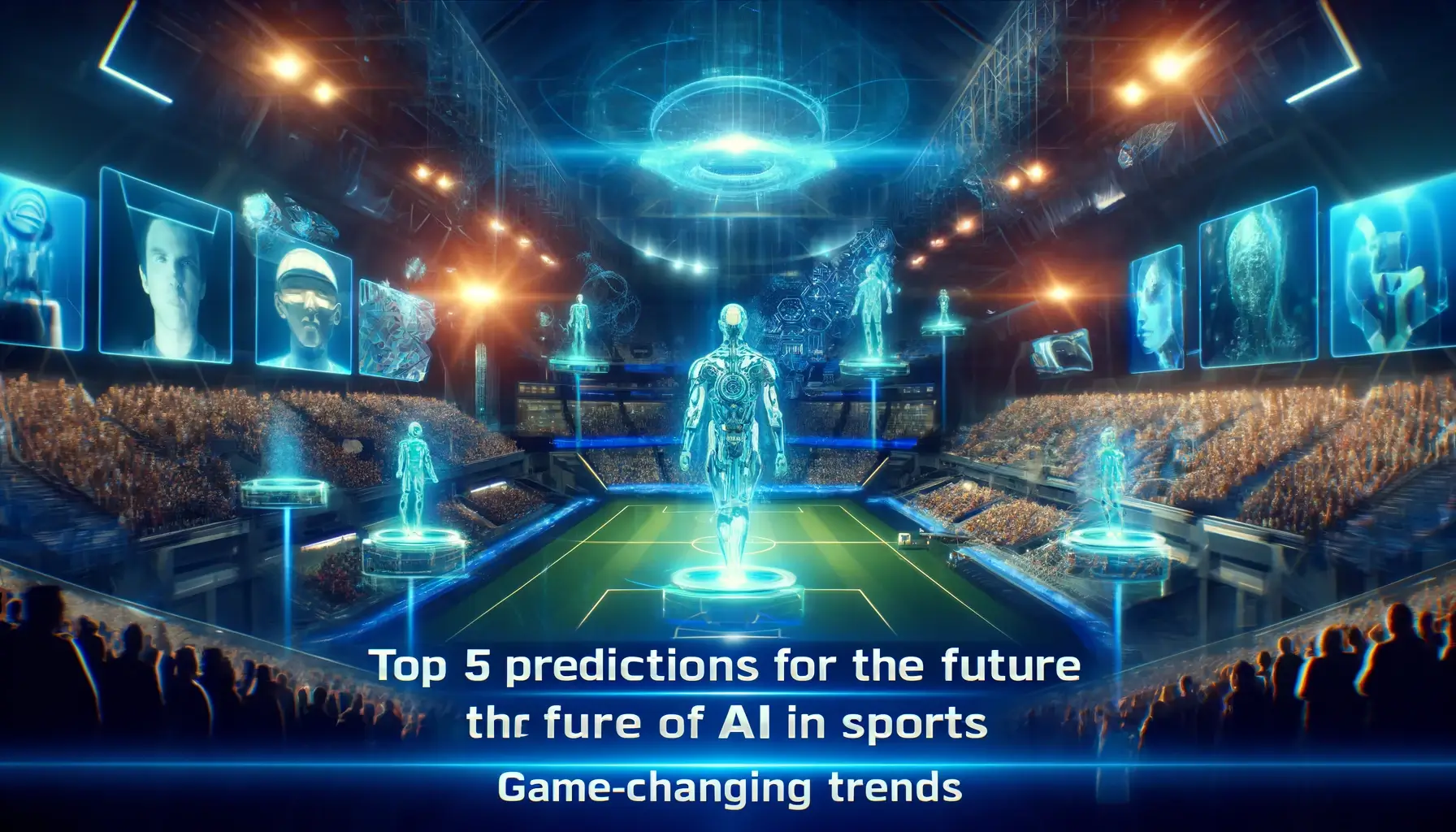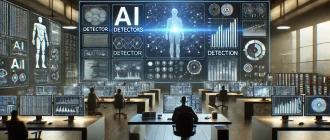The intersection of AI and sports is changing the game — but how exactly? Those seeking the ‘top 5 predictions for the future of AI in sports’ expect transformations in coaching strategies, athlete optimization, interactive fan experiences, smarter analytics, and targeted recruitment. This article cuts straight to the forecast of this exciting union, providing a clear view of AI’s impact on tomorrow’s sports without giving it all away.
Key Takeaways
- AI is revolutionizing sports through predictive playbooks, strategic in-game adjustments, and enhanced opposition analysis, enabling teams to make informed tactical decisions and gain competitive advantages.
- Athletes benefit from AI applications in personalized training regimens, injury prediction and prevention, and nutrition and recovery optimization, leading to improved health, performance, and longevity in sports careers.
- AI enhances the fan experience with virtual and augmented reality, interactive platforms, and data-driven personalization, and it expands its influence in sports analytics and recruitment for more effective talent scouting and team composition.
Table summarizing the top 5 predictions for the future of AI in sports:
| Prediction | Description | Impact |
|---|---|---|
| Enhanced Fan Engagement through AI-generated content | AI will create advanced virtual experiences and personalized content, transforming how fans interact with sports. | Increases engagement and offers new ways for fans to experience games. |
| AI in Sports Training and Strategy | AI-driven analytics and predictive models will help coaches and players enhance strategies and performances. | Improves player performance and strategic planning. |
| AI-Operated Autonomous Sports Events | AI could manage various aspects of sports events, from logistics to game rule enforcement, potentially leading to fully autonomous events. | Streamlines event management and potentially reduces human error in gameplay oversight. |
| Expansion of e-Sports and AI Competitions | AI’s role in developing and playing games will expand, enhancing the complexity and strategic aspects of e-sports. | Broadens the appeal and diversity of e-sports, attracting more participants and viewers. |
| Ethical and Regulatory Challenges | As AI integration in sports grows, so will the ethical and regulatory scrutiny, especially regarding fairness and privacy. | This leads to developing standards and regulations to ensure fairness and transparency. |
These predictions showcase how AI might influence the sports industry, from fan interaction to regulatory challenges, highlighting opportunities and challenges ahead.
Elevating Game Strategy with AI
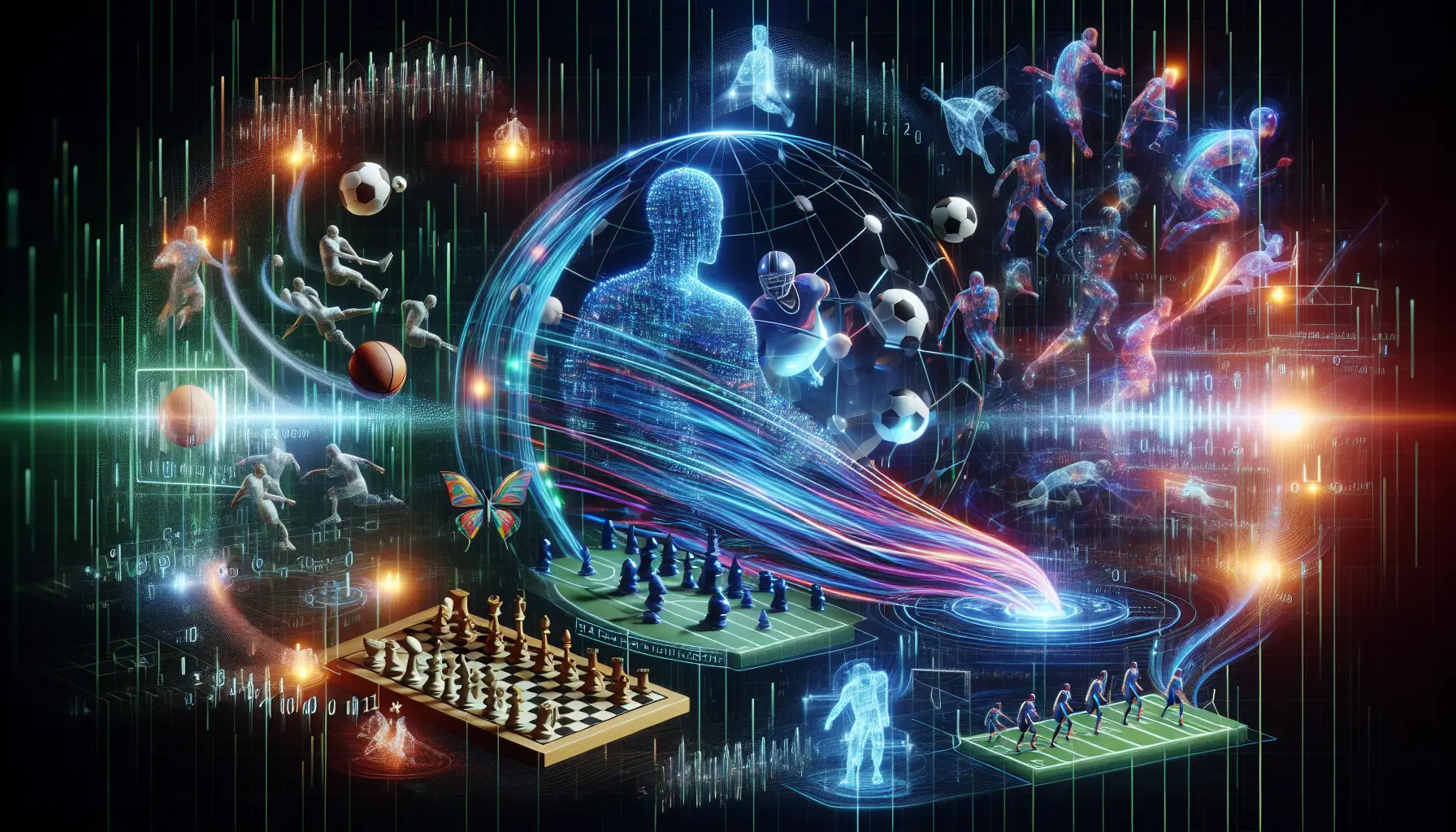
Staying ahead of the game in today’s hyper-competitive sports landscape requires more than talent and hard work. It requires a secret weapon: artificial intelligence. AI in sports is elevating the game strategy, ushering in an era of predictive playbooks, strategic in-game adjustments, and enhanced opposition analysis.
Let’s delve into how AI is reshaping the game.
Predictive Playbooks
Picture a football team; the players move in perfect harmony, each play seeming to anticipate the opposition’s tactics. This isn’t a coincidence; it results from AI-generated predictive playbooks. AI models, built on machine learning algorithms, analyze historical data to predict match outcomes and formulate dynamic playbooks that adapt in real time. This gives sports teams the foresight to stay one step ahead of their rivals.
This adaptive playbook wouldn’t exist in isolation. It’s part of a larger AI-driven strategy, one that includes:
- Studying game footage to identify patterns, player movements, and opponent weaknesses
- Analyzing this data to tailor playbooks to be responsive to the strategies of opponents
- Allowing teams to modify their tactics on the fly and gain a competitive edge during matches
Strategic In-Game Adjustments
While predictive playbooks prepare teams for the game, what happens when the whistle blows and the game starts? That’s where strategic in-game adjustments come into play.
AI is crucial for making real-time strategic decisions during games and enhancing team tactics and on-field actions.
Consider a scenario where a football team is trailing by a goal with ten minutes to go. AI processes live game data to suggest immediate strategy shifts, such as:
- defensive adjustments
- substitutions
- changes information
- targeted player instructions
This real-time analysis of spatial data, formations, and player trajectories facilitated by AI enables coaches to make tactical decisions supported by data during a game.
This real-time player performance analysis, game analysis, and strategic adjustments could be the difference between a loss and a comeback victory, helping to make sports predictions and predict game outcomes more accurately.
Enhanced Opposition Analysis
Understanding your enemy is half the battle won. This means analyzing the opposition’s tactics, strengths, and weaknesses in sports. AI takes this opposition analysis to another level. Coaches can develop tactical strategies to exploit opponents’ weak spots that AI quickly identifies. This capability can give teams a competitive edge in sports.
This enhanced opposition analysis isn’t based on gut feelings or intuition. It results from AI’s ability to analyze comprehensive datasets and accurately predict opponents’ tactics. By understanding these tactics, coaches can devise strategies to counter them and gain a competitive edge.
Maximizing Athlete Performance and Health Through AI
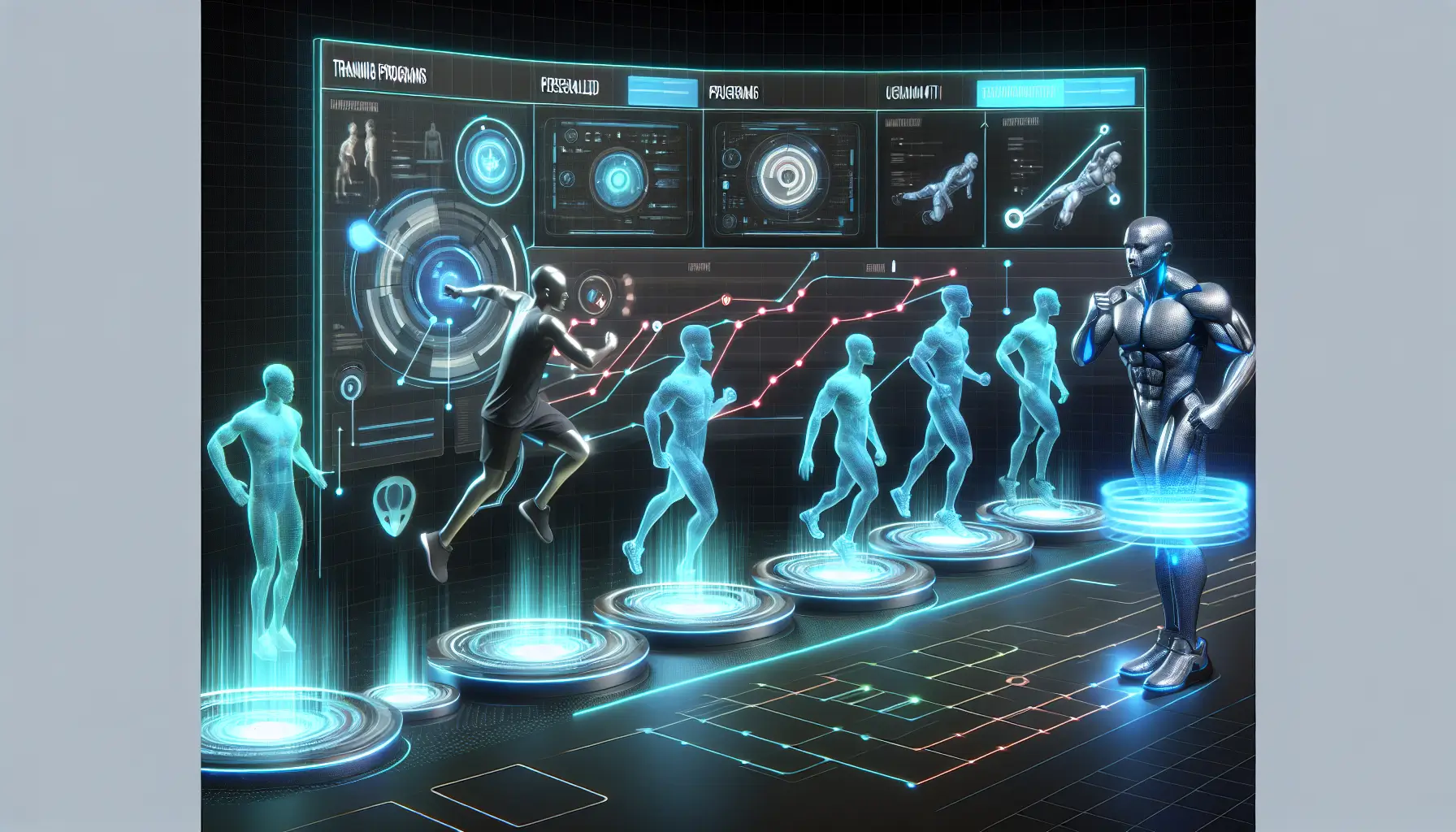
As we lift the veil on the AI-driven future of sports, we discover its transformative impact on athlete performance and health. From personalized training programs and injury prediction to nutrition and recovery optimization, AI is revolutionizing how athletes train, recover, and perform.
Let’s dive into the specifics.
Personalized Training Programs
There’s no one-size-fits-all approach to sports training. What works for one athlete may not work for another. This is where AI comes into play, generating individualized training programs that evolve based on the athlete’s performance data and response to the regimen.
Imagine a basketball player struggling with free throws. During training sessions, AI algorithms can analyze biometric and visual feedback from wearables and computer vision systems to identify the player’s technique deficiencies. Based on this data, AI generates a personalized training plan to improve the player’s free throw technique. Over time, as the player’s technique improves, AI adapts the training plan, ensuring continuous improvement and performance enhancement.
Injury Prediction and Prevention
Injuries are the bane of any athlete’s career. They can sideline players for weeks, months, or even end careers. AI is stepping in to predict and prevent sports injuries, ensuring a strong and healthy team with the help of AI sports predictions.
AI-powered predictive modeling can foresee potential injuries in players, informing training adjustments to prevent them. For example, suppose an algorithm detects a player’s running style pattern that could lead to a knee injury. In that case, it can suggest changes in their running technique or recommend specific strengthening exercises.
This proactive approach to injury management can significantly decrease player injuries, ensuring long-term team performance.
Nutrition and Recovery Optimization
Beyond training and injury prevention, AI also plays a crucial role in other aspects of athlete health and performance, such as:
- Nutrition: AI analyzes dietary data to inform tailored nutrition strategies for athletes.
- Sleep: AI analyzes sleep data to optimize sleep patterns and improve recovery.
- Recovery: AI analyzes recovery data to inform tailored recovery strategies for athletes.
Athletes can enhance their overall health and performance by utilizing AI in these areas.
For instance, an AI system might notice that an athlete’s performance dips when they don’t get enough sleep or don’t consume enough carbohydrates. Based on this analysis, AI can develop personalized nutrition strategies and recovery protocols, optimizing rest and recovery for the athlete.
This way, every aspect of the athlete’s life, from training and nutrition to sleep and recovery, is optimized for peak performance.
Revolutionizing Fan Engagement with AI Technologies
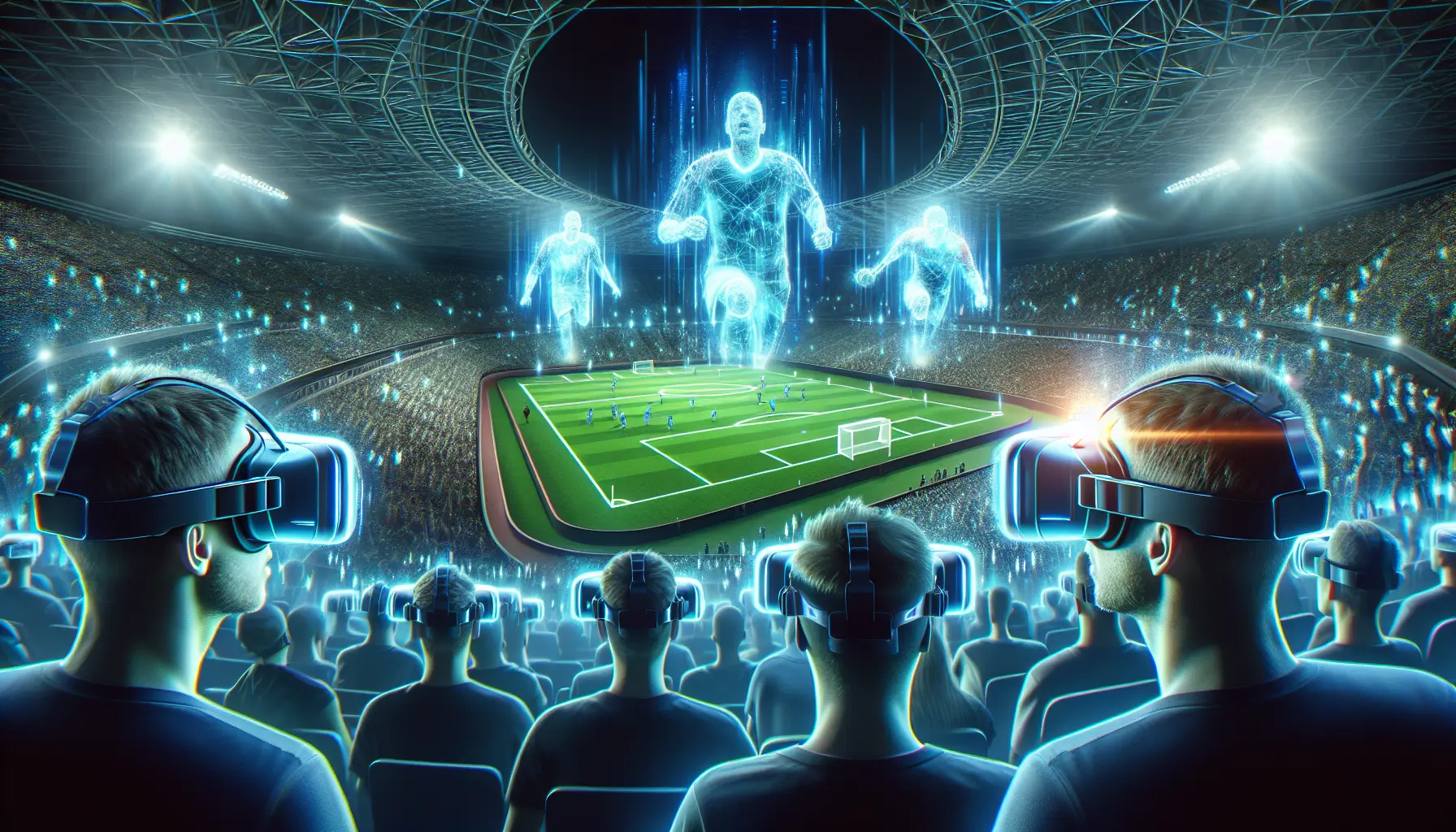
While AI is transforming the game and athletes’ performance, it’s also revolutionizing the fan experience. Through virtual and augmented reality experiences, AI-powered interactive platforms, and data-driven personalization, AI brings fans closer to the game they love.
Let’s explore how.
Virtual and Augmented Reality Experiences
With the rise of virtual and augmented reality, the sports industry is experiencing a dramatic change in how fans consume sports. Virtual reality sports applications extend beyond viewership to include fitness and training experiences.
Imagine strapping on a VR headset and finding yourself on the pitch with your favorite football team, practicing drills alongside them. AI models in fitness applications can track your body movements, providing a more immersive and personalized training session. This fusion of AI, VR, and sports is changing how fans watch sports and how they play and train.
AI-Powered Interactive Platforms
The fan experience isn’t just about watching the game anymore. It’s about interacting with it. AI-driven interactive platforms are revolutionizing fan engagement before, during, and after sports events by providing personalized content and promotions.
AI platforms offer real-time statistics and sports betting during live sports events to enhance the fan experience. Imagine watching a basketball game and getting real-time stats on your favorite player or participating in predictive gaming based on the game’s flow.
Post-event, these platforms provide highlights, analyses, and discussion forums tailored to fan preferences. It’s a complete, interactive, and immersive fan experience, all powered by AI.
Data-Driven Personalization
One of the most significant advantages of AI in fan engagement is data-driven personalization. AI enables fans to receive personalized content, such as in-depth game analyses, player statistics, and predicted game outcomes tailored to their preferences.
This personalization extends beyond just content. Picture a scenario where a fan logs into a sports app. Based on their previous interactions, the app, powered by machine learning algorithms, provides personalized recommendations for articles, highlights, and merchandise. It’s a uniquely personal and engaging fan experience made possible by AI.
Advancing Sports Analytics with AI and Machine Learning
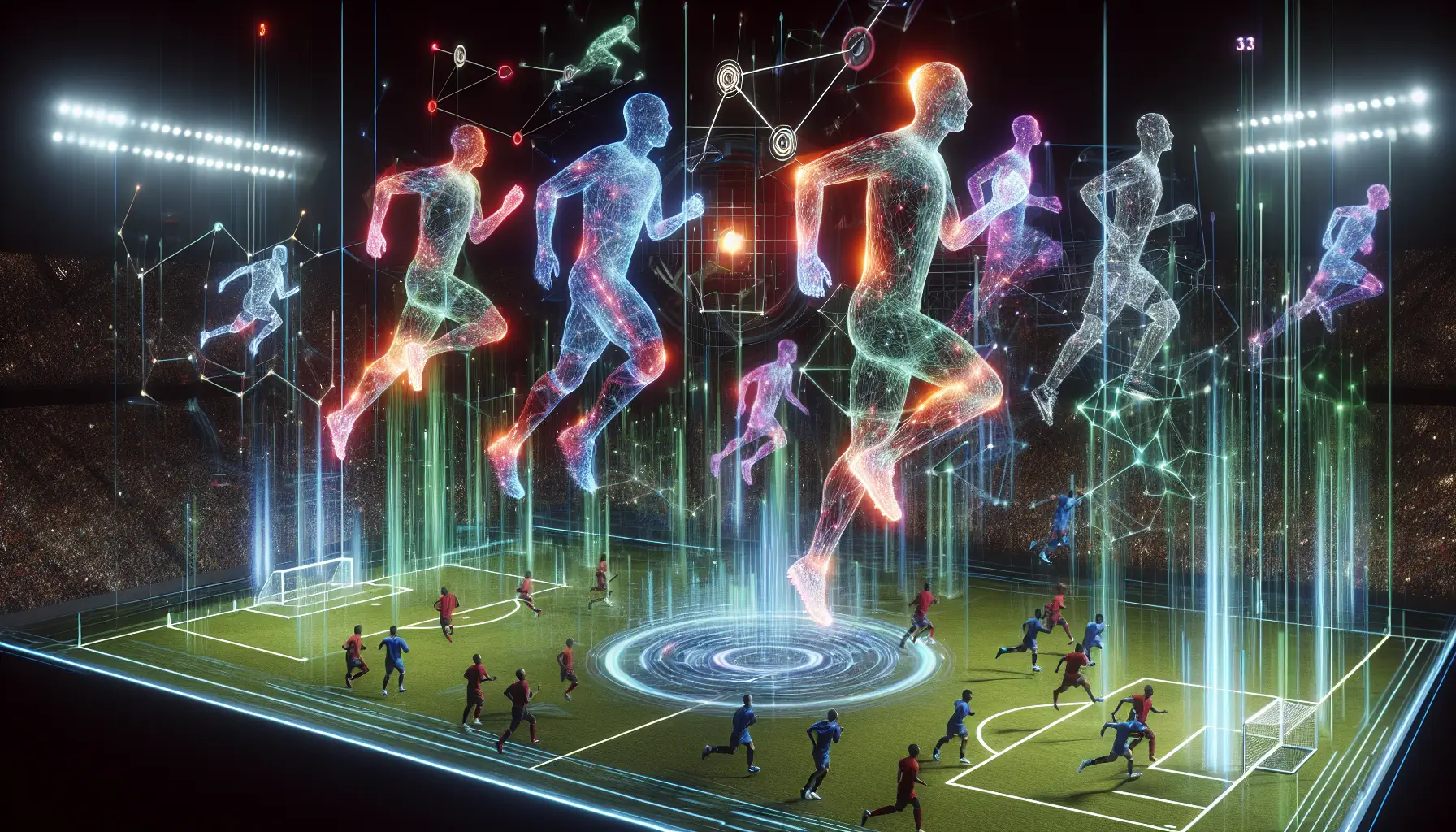
The potential of AI in sports isn’t limited to the field, the gym, or the fan experience. It also extends to sports analytics, where AI and machine learning enable next-level performance evaluation, real-time sports data analysis, and computer vision in sports analysis.
Let’s explore these in more detail.
Next-Level Performance Evaluation
In the world of sports, performance is everything. Coaches and athletes always seek ways to improve, and AI plays a pivotal role in this quest. Through detailed performance analysis, AI enables coaches to create tailored training schedules for athletes, emphasizing a holistic approach to performance enhancement and health.
Consider a scenario where a coach uses AI to analyze an athlete’s performance trends and health indicators. The coach notices athletes’ performance dips when their heart rate exceeds a certain threshold. Based on this insight, the coach can modify the athlete’s training program to improve their cardiovascular fitness and overall performance.
This level of detailed, personalized performance evaluation is only possible with AI.
Real-Time Data Analysis
As we’ve seen, AI can analyze historical data to inform future strategies. But its capabilities don’t stop there. AI also enables real-time data analysis, offering immediate feedback and suggestions for improvement during games.
Imagine a basketball coach watching their team play. The coach receives real-time data on player performance, team formations, and other vital statistics as the game progresses. This real-time data analysis allows the coach to make informed strategic decisions during the game, like adjusting the substitution pattern and tweaking the game plan. It’s like having a virtual assistant coach, all thanks to AI.
Computer Vision in Sports Analysis
Computer vision is one of AI’s most exciting applications in sports analytics. Computer vision technology monitors player movements and provides detailed statistics for analysis and strategic decision-making.
Consider the game of football. AI can provide insights into the team’s playing style, strengths, and weaknesses by analyzing player movements, formations, and ball trajectories. This information can inform strategic decisions, like changing the game plan or adjusting player positions. With computer vision and AI, the possibilities are endless.
Transforming Recruitment and Talent Acquisition
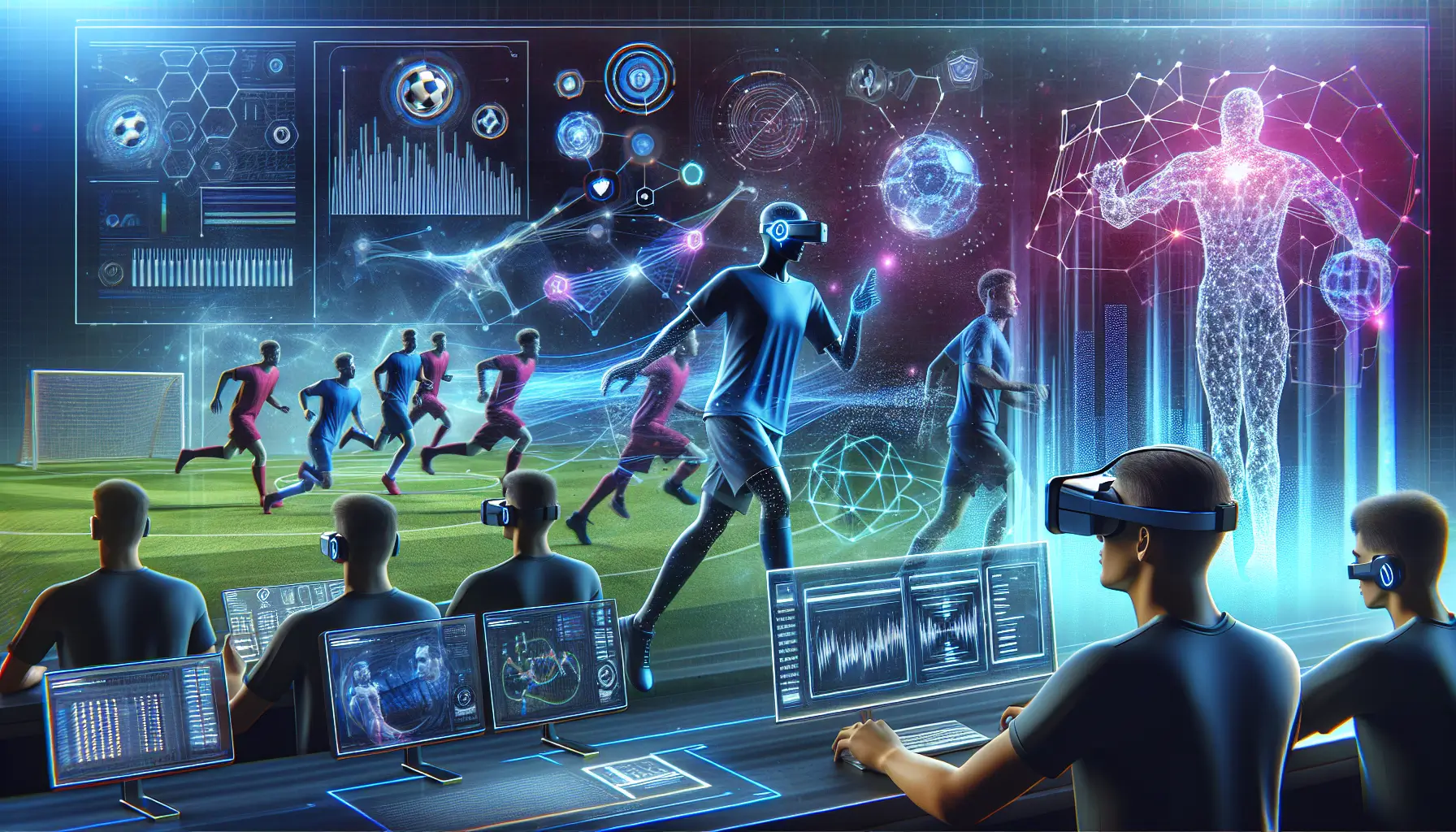
The impact of AI isn’t just limited to game strategy, athlete performance, fan engagement, and sports analytics. It’s also transforming the way sports teams recruit and acquire talent.
Let’s explore how AI revolutionizes recruitment and talent acquisition in sports organizations.
AI-Driven Scouting Networks
In the world of sports, talent is everything. And finding that talent is a challenge that every sports team faces. AI technology is stepping in to help scouts and coaches detect athletic talent by analyzing player data and performance metrics.
Imagine a scouting network powered by AI. It sifts through extensive player data, including statistics, biometrics, and video footage, to detect talented athletes. This AI-driven scouting network enhances the efficiency and precision of data gathering and analysis, leading to more effective identification of gifted athletes. It’s a game-changer in the world of talent scouting and recruitment.
Predictive Career Trajectories
Predicting an athlete’s future performance and career path is no easy task. But with AI, it’s becoming possible. AI can project potential advancement and success in athletes’ careers by analyzing their historical data and performance metrics.
For young athletes, this predictive capability of AI could be a game-changer. It could guide decisions regarding their training, development, and professional trajectory, helping them reach their full potential.
This predictive capability also helps coaches, scouts, and teams manage talent, enhancing their decision-making and planning processes.
Optimizing Team Composition
Building a balanced sports team is more than just recruiting talented athletes. It requires ensuring optimal compatibility between the players and the team’s strategy. AI assists in this process by analyzing individual players to ensure optimal compatibility with the team’s approach and other players.
Imagine a basketball team trying to build a balanced team. AI evaluates team dynamics by understanding interactions and performance patterns among players. Based on this analysis helps the team recruit players who fit into the team’s strategy and dynamics, contributing to a more strategically sound team composition.
Overview
We’ve journeyed through the world of sports and seen how AI transforms game strategy, athlete performance, fan engagement, sports analytics, and talent acquisition. We’ve seen how predictive playbooks, real-time data analysis, virtual reality experiences, detailed performance evaluations, and AI-driven scouting networks reshape the sports landscape. As we look to the future, one thing is clear: AI is no longer an emerging trend in sports. It’s a game-changer, and the game is just getting started.
Frequently Asked Questions
How is AI improving game strategy in sports?
AI is improving game strategy in sports by enabling predictive playbooks, strategic in-game adjustments, and enhanced opposition analysis, which provide teams with a competitive edge by allowing them to anticipate opponent strategies and make informed decisions.
How is AI maximizing athlete performance and health?
AI maximizes athlete performance and health through personalized training, injury prediction, prevention, and optimized nutrition and recovery plans tailored to individual data analysis. This technology empowers athletes to reach their full potential while minimizing health risks.
How is AI revolutionizing fan engagement?
AI transforms fan engagement through virtual and augmented reality experiences, AI-powered interactive platforms for real-time statistics and predictive gaming, and data-driven personalization for tailored content and promotions. This enhances the overall fan experience and increases user engagement.
How is AI advancing sports analytics?
AI is advancing sports analytics by allowing for detailed performance evaluation, real-time data analysis, and computer vision in sports analysis. It provides immediate feedback and suggestions during games and monitors player movements for strategic decision-making.
How is AI transforming recruitment and talent acquisition in sports?
AI is transforming recruitment and talent acquisition in sports by enabling AI-driven scouting networks to detect talent, predict career trajectories, and optimize team composition based on player compatibility and team dynamics, revolutionizing how sports organizations identify and acquire talent.
